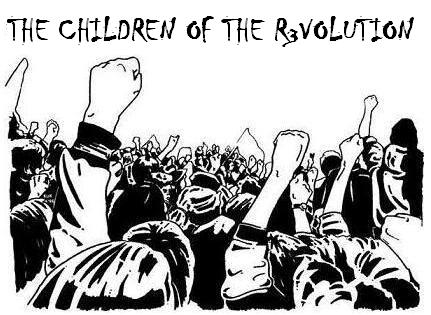 For some reason the economy has been on a lot of people's minds of late. This is perplexing to me, as a truly relevant discussion of economics, from developing appropriate incentives, understanding the semi-rational expectations of various actors, and qualifying the role that public policy and federal action can and should play in moderating financial markets, is exceptional only in its capacity to bore.
For some reason the economy has been on a lot of people's minds of late. This is perplexing to me, as a truly relevant discussion of economics, from developing appropriate incentives, understanding the semi-rational expectations of various actors, and qualifying the role that public policy and federal action can and should play in moderating financial markets, is exceptional only in its capacity to bore.I suppose I understand how, on the micro level, it is especially relevant to your average person today. The irony is how this relevance has elicited passionate debate on the macro level. Don’t get me wrong, this is an important issue that everyone should become more familiar and vocal on, even if solely from an ideological standpoint (prior to today, the aforementioned exceptional boredom limited the debate to a small group of equally boring academic types). The rub, of course, is that it may in fact be too late for said macro level debate.
We have voted on our leaders (whose thoughts on said boring subjects were made fairly well known in the latter days of the campaign), and they will now appoint the decision makers of the next four years. Our ability to impact said appointments, and the subsequent decisions made, is limited. So where is our macro economy heading?
I read that a tiny gear is replete with anger at the nature of our upcoming federal fiscal policy, and rightly so. As the little cog points out, our official economic policy amounts to little more than a bunch of handouts, which moreover are not providing any tangible benefit. This lack of results is quantified and analyzed in a very thoughtful piece in the WSJ by former undersecretary and current Stanford Professor John Taylor. Professor Taylor observes that the previous stimulus package had no correlative impact on consumer spending. In fact, spending declined following the 2008 economic stimulus package, and in spite of these facts, the upcoming administration plans on giving more money away.
I could diatribe for pages on the role government should really play in an economic recovery, and the fruitless (and even potentially harmful) consequences of unbridled hand-outs, but that is not the intention of this post. Rather, I want to encourage all who read this not to forget the micro level economics, your personal economy, as you become impassioned by the macro level issues now consuming our 24/7 media machine. Those macro decisions are out of your hands, but your fate is not out of your control. While personal responsibility seems to have slipped off the shelf of distinctly American virtues over the past decade, it is exactly your capacity to make such decisions that will help you weather the fast approaching storm, and potentially be among those that come out ahead of the game when the economy picks up in four to eight years.
Here are some of my thoughts on taking things into your own hands:
1. Rethink your healthcare. You may or may not have health insurance. The government is promising to bring your health care reform, which ultimately means whether or not you are insured, things are about to get a lot more expensive and a lot less efficient. What can you do? Reduce your dependence on the health care system completely. Change your habits, change your lifestyle. Focus the resources you allocate to your family’s healthcare on prevention and wellness, not just saving and waiting for reactionary treatment. It won’t matter how bad the government messes up our healthcare system if you can avoid needing to use it.
2. Pay down your debts. I made this argument to a select few a couple months ago. From a purely historically perspective, the market underperforms in years of increased government intervention and social experimentation. Don’t expect 6-10% returns in the stock market over the next four to eight years, or even returns that beat inflation. Want to make those kinds of returns? Pay down your debts. Every dollar of your credit card bill that you are no longer paying ridiculous interest on is a dollar earned.
3. Invest in yourself. Along the same lines as above. While there will certainly be investment opportunities in the market, the average person is not going to have the sophistication to find them. Your greatest long term returns will come from investing in yourself. Go to school if you can afford it (the new government may even end up subsidizing you) or learn a new skill on your own. As unemployment rises, the more you can do to distinguish yourself, the less you have to rely on the government welfare machine.
4. Raise holy hell. The media will continue to tell you everything is all right, and gingerly pat your hand as the house burns down around you. Don’t let charisma and rhetoric lull you into a false sense of security. FDR went down as one of the most popular presidents in our history, even though many contemporary economists consider his New Deal social experimentation as causative, not curative, of the Great Depression. As our government throws your money at its messes and tells you everything is working, continue holding them accountable.
I relish in ideological political debate, but let us not forget that at the end of the day, we need to watch out for ourselves as well. I openly welcome and actively seek discussion and advice on how to better myself, and I hope you will do the same. We may not like the way our country goes in the next eight years, but shame on us if we use it as an excuse for the direction we take ourselves.







1 comment:
This is a GREAT article. One of the more useful ones posted on COTR.
Post a Comment